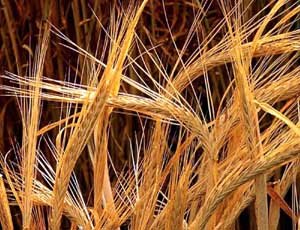 The government said on Thursday areas under wheat, pulses, oilseeds and some coarse cereals will go up in the Rabi season and resolved to make up for losses of summer-sown crops due to drought in about half the country.
The government said on Thursday areas under wheat, pulses, oilseeds and some coarse cereals will go up in the Rabi season and resolved to make up for losses of summer-sown crops due to drought in about half the country.
"The coverage of wheat, oilseeds, pulses and some oilseeds will definitely go up. Only paddy crop will come in limited areas," food and agriculture minister Sharad Pawar said in New Delhi on the sidelines of a conference.
The two-day seminar, starting Thursday, is being conducted to form strategy for the coming Rabi season in consultation with states to compensate against the losses in many crops due to drought during the Kharif season.
"There will be a production gap (in rice) because of less sowing by about 61 lakh (6.1 million) hectares. It has to be compensated and this possibility is in the Rabi and summer crops.
We are working very hard (towards that end)," Pawar said. Though the minister maintained that the actual decline in the output of rice, the worst-hit crop in the Kharif, is yet to be ascertained, he has directed states to raise the coverage of boro paddy to compensate against the losses.
"The exact figures will emerge later but without waiting for the production figures, it is important for us to plan and take compensatory steps...by careful and judicious planning of the Rabi season," he said.
To raise areas under crops, the Centre has drawn up a strategy for the Rabi that comprises timely availability of loans, adequate seeds and fertilisers to farmers.
Speaking at the seminar, the minister said the late rains this month has raised not only the water level in reservoirs but also the moisture content of soil, prompting the Centre to make the best use of the situation.
"The need is now to act with a sense of urgency that strives to achieve the higher crop production levels in Rabi season to compensate the crop production losses of Kharif season," he said.
Speaking on the occasion, Agriculture Commissioner N B Singh said making best use of cultivable land and raising productivity hold the key to any bridging of losses.
"Extra-ordinary situation requires extra-ordinary solutions where business-as-usual approach won't do," he said.
The commissioner advised states to facilitate the use of high-yielding and better varieties of seeds of different crops apart from taking care of timely plantation, proper input management and efficient use of canal water.
Agriculture secretary T Nanda Kumar said offsetting losses during the Rabi hinges on how much of a rise the states can register both in areas under crops and productivity.











 © 2025
© 2025